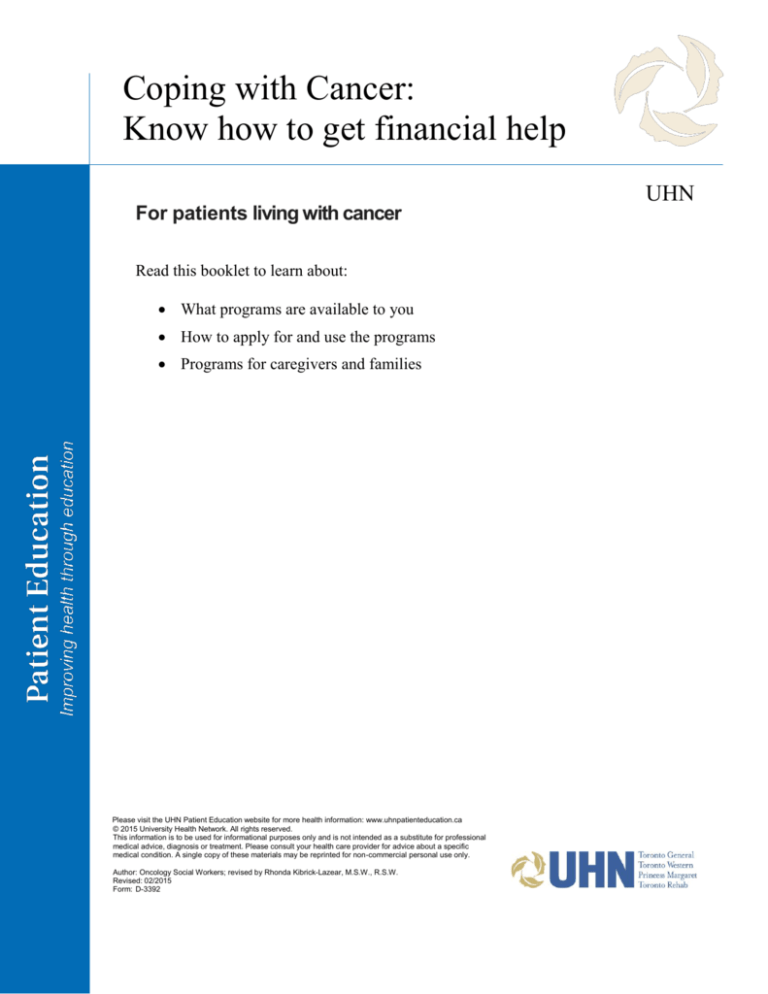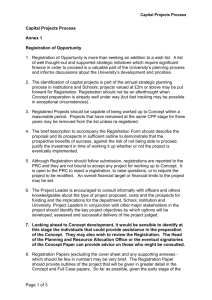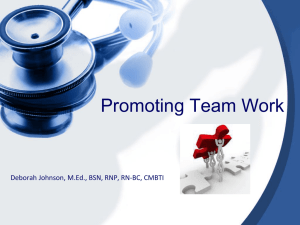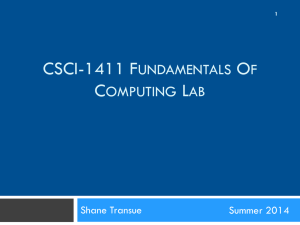
Coping with Cancer:
Know how to get financial help
For patients living with cancer
Read this booklet to learn about:
What programs are available to you
How to apply for and use the programs
Programs for caregivers and families
Please visit the UHN Patient Education website for more health information: www.uhnpatienteducation.ca
© 2015 University Health Network. All rights reserved.
This information is to be used for informational purposes only and is not intended as a substitute for professional
medical advice, diagnosis or treatment. Please consult your health care provider for advice about a specific
medical condition. A single copy of these materials may be reprinted for non-commercial personal use only.
Author: Oncology Social Workers; revised by Rhonda Kibrick-Lazear, M.S.W., R.S.W.
Revised: 02/2015
Form: D-3392
UHN
What are “income maintenance programs”?
Many people who are living with cancer, and/or getting treatment for cancer, will not be
able to work for some amount of time.
The amount of time that you will not be able to work will depend on your health, and the
type of work that you do. Speak to a Social Worker at the Princess Margaret Cancer
Centre to know what to expect and how to prepare for this.
There are many programs that may be able to give you financial help. These programs are
also called “income maintenance programs”. Details about each of these programs are
listed in this pamphlet.
If you would like help learning more about these services, contact the following:
Social Worker - Psychosocial Oncology Clinic
Princess Margaret Cancer Centre
16th Floor, Room 718
To book an appointment call: 416-946-4525
A Social Worker can help you find out:
If there are any financial support programs that can assist you,
How these programs work, and
How you can apply for them.
Wellspring Money Matters Resource Centre
4 Charles Street East, 4th Floor
To book an appointment call 416-961-1928
A Money Matters Case Manager can give you:
Information and guidance on government and employer-based income and
benefits programs.
Private, one-to-one appointments at no charge.
Financial advice. Wellspring offers a Financial Advice Clinic, Ontario Works onsite intakes and a Long-Term Disability and Employment Law Clinic.
Case Managers can also help you complete application forms and can refer you to
services in the community.
2
What programs are available to you?
You may qualify for financial assistance from one or more of the programs below:
Work Related Benefits
Employment Insurance (EI) Sickness Benefits
Canada Pension Plan (CPP) Disability Benefits
Ontario Works (OW)
Ontario Disability Support Program (ODSP)
Work-related benefits
What are work-related benefits?
These benefits are part of workplace insurance plans. They are not run by the
government. If you work and your employer has a plan, you have probably been paying
into a work-related benefit plan.
Who are they for?
These benefits are for people who have paid into insurance plans through their
workplace.
What kinds of benefits are there?
Sick Pay (covers all, or only part of your regular pay)
Short-Term Disability Pay
Long-Term Disability Pay
How do I apply?
You apply through the “Personnel” or “Human Resources Department” at your
workplace.
What else should I know?
The benefits you can get will depend on the plan your employer has. Different employers
have different plans. Talk to the Personnel or Human Resources Department at your
workplace to see what you can apply for.
These plans usually offer different kinds of help. The help might be short-term or longterm. It might be the same as your regular pay (full pay) or cover only part of it (partial
pay).
3
Government Social Insurance Benefits (Federal)
What are government Social Insurance Benefits?
These benefits are run by the federal government. The money comes from payments
people must make through their workplace. If you work, you have likely paid into these
government social insurance benefits, and programs.
Who are they for?
These benefits are for people who have paid enough into government social insurance
plans through their workplace. In order to qualify:
You must have paid into the plan. This would show up as a deduction (money
taken off) from your paycheque.
Ask your workplace’s Personnel or Human Resources Department if you are not
sure.
What kinds of benefits are there?
1. Employment Insurance (EI) – Sickness Benefits
2. Canada Pension Plan – Disability Benefits.
The amount of financial support you can get is based on the contributions you have made
to the benefit.
Read below to know more about how these 2 programs work.
Employment Insurance (EI) – Sickness Benefits
For the most up-to-date and complete information, call Service Canada at 1-800-2067218, or visit http://www.servicecanada.gc.ca/eng/sc/ei/index.shtml
How do I qualify for EI Sickness Benefits?
This is a short-term sick benefit that you can get for up to 15 weeks. You must have
worked a minimum of 600 hours in the last 52 weeks to qualify for EI Sickness Benefits.
When should I apply?
You should apply as soon as you can, after you stop working. You should apply even if
your employer has not given you your Record of Employment (ROE) yet. If you apply
for benefits later than 4 weeks after your last day of work, you risk losing benefits.
4
What is the 2-week waiting period?
Before you can start getting EI benefits, there is a 2-week waiting period during which
you will not be paid. This waiting period is like the deductible (money you pay into) for
other types of insurance.
How do I apply?
You must apply online or in-person at a Service Canada Centre. After you apply, it can
take about 6 weeks for the government to process and respond to your application.
It will take about 60 minutes to complete the online application. The Service Canada
website takes you through the application process, step-by-step. The Service Canada
website also gives you details on how to complete the form.
To apply online, visit: http://www.esdc.gc.ca/eng/home.shtml
For a list of Service Canada Centres to apply at in-person, visit:
http://www.servicecanada.gc.ca/cgi-bin/sc-srch.cgi?ln=eng
What information do I need to apply?
You will need to have personal information, such as your:
Social Insurance Number (SIN). If your SIN begins with a “9”, you need to
provide proof of your immigration status and work permit.
Mother's maiden name (her last name before marriage)
Mailing and home address
Complete banking information. If you want your benefits payments put straight
into your bank account, you will need to have the following employment
information:
Record of Employment (ROE)
Names and addresses of all your employers over the last 52 weeks.
The dates that you worked for all your employers over the last 52 weeks, and
the reasons for leaving each job (e.g. quit, dismissed or fired, sick leave)
If your employer provides ROEs in paper format, you must request copies of
all ROEs given to you over the last 52 weeks. After you submit your EI
application online, you will also need to submit your ROE by mail or inperson.
If your employer submits ROEs directly to Service Canada online, you do not
need to request a copy of your ROE from your employer. You will not need to
submit your ROE.
5
If you are having problems getting your ROEs from your employers, call Service Canada
at 1-800-206-7218 for help.
What other information do I need?
You will also need to gather other information, such as:
A Medical Certificate Form (you can get this form online)
The Medical Certificate Form:
Says how long you are likely to be off work (start and recovery dates).
Must be signed by your doctor
You should keep a copy of the completed form for your records.
Your will need to submit the original Medical Certificate Form by mail or inperson at your local Service Canada Centre.
How much financial support can I get?
Most people will get EI benefits that amount to about 55% of their average insurable
weekly earnings, up until a maximum amount.
For more information on Employment Insurance, contact Service Canada directly, or read
more at this website link:
http://www.servicecanada.gc.ca/eng/ei/types/sickness.shtml#much
Canada Pension Plan (CPP) – Disability Benefits
For the most up-to-date and complete information, call Service Canada at 1-800-2779914 or visit:
http://www.servicecanada.gc.ca/eng/sc/cpp/disability/disabilitypension.shtml
What is the CPP Disability Benefit?
The CPP Disability Benefit is a monthly payment made to people who recently paid into
the Canada Pension Plan (CPP) while they worked, and then become unable to work due
to a disability.
How do I qualify for CPP Disability Benefit?
You must have a severe and prolonged illness. “Severe” means that you cannot work at
any job on a regular basis. “Prolonged” means that you cannot work for at least 1 year.
6
You may qualify for the CPP Disability Benefit if:
You are under 65 years of age
You stopped working because of your medical condition
You paid into the CPP for at least 4 of the last 6 years, OR you paid into the CPP
for at least 25 years and made contributions to the plan in 3 of the last 6 years
If you are not sure if you qualify for CPP Disability Benefits, contact Service Canada at
1-800-277-9914 for assistance.
How do I apply for the CPP Disability Benefit?
You must apply in writing. You can get the forms to apply on the Service Canada
website, or you can contact Service Canada and ask to have the forms mailed to you.
You can also pick-up the forms to apply at the reception desk of the Psychosocial
Oncology Clinic, 16th Floor, Room 718. Your doctor will need to complete the Medical
Report.
Before you apply, you can do few things to prepare:
Read the “General Information and Guide”, which is part of the package of forms
you get to apply. This guide includes:
The steps to complete your application,
Changes you should know of that may affect your benefits,
A mailing checklist, and
Other useful information about disability benefits.
If you are a parent or guardian, you could request the child-rearing provision (form
is in the package of forms). You could also request the children's benefit (a section
of the main application form).
If you are unable to fill out the forms, a family member or a friend can help you.
Make sure that you allow them to do this by signing where necessary.
Service Canada takes about 4 months to decide if you qualify or not.
When will my payments start?
Your payments start 4 months after the date Service Canada decides if you were found to
be disabled under CPP rules.
7
How much financial support can I get?
The amount of money you get depends on how much you paid into the CPP while you
were working. You will receive the basic fixed monthly amount, plus an amount based on
how much you contributed to the CPP during your entire working career. There is a
maximum limit to the financial support you can get.
If you qualify for a CPP disability benefit, you also get an allowance (a certain amount of
money) for every child you have that is still financially dependent on you.
If you are getting a CPP disability benefit, your dependent children may also qualify for a
children's benefit. For more information on CPP disability payments, contact Service
Canada directly, or visit this website:
http://www.servicecanada.gc.ca/eng/services/pensions/cpp/payments/index.shtml
Government Social Assistance Benefits (Provincial)
What are government Social Assistance Benefits?
Social Assistance Benefits are different then Social Insurance Benefits. Social Assistance
Benefits are different in a few ways:
1. They are run by the provincial government.
2. People who get Social Assistance Benefits do not need to have paid into the
program through workplace contributions in order to qualify.
3. The money for Social Assistance Benefits comes from taxes.
Who are these benefits for?
These benefits are for people who have:
No income,
Low income,
No assets (things you own, or have) (e.g. property, savings), and/or
Low amount of assets.
What kinds of benefits are there?
1. Ontario Works: Emergency/Short-Term Financial Assistance
2. Ontario Disability Support Program: Long-term assistance for people who cannot
work because of an illness.
Read below to know more about these 2 programs.
8
Ontario Works (OW)
For the most up-to-date and complete information, call the Ontario Works Client Services
and Information Unit at 416-392-2956 or visit:
http://www.toronto.ca/socialservices/
Or
http://www.mcss.gov.on.ca/en/mcss/programs/social/ow/
What is Ontario Works?
Ontario Works is a province-wide social assistance program. The program includes
employment services and financial assistance.
Ontario Works can give you:
Financial help right away, but only for the short-term. Ontario Works might meet
your needs while you are waiting for help from another government program (e.g.
EI, CPP, or ODSP).
Special assistance, if you qualify for “special needs”. This means you can get
money for things related to your illness (e.g. special diet, dental bills,
transportation, medical supplies, or wigs)
A drug benefit card that you can use at the pharmacy to pay for prescribed (given
to you by a doctor) medications.
How do I qualify for Ontario Works financial assistance?
Whether you qualify for Ontario Works or not depends on your:
Income,
Assets,
Family size,
Housing situation,
and more.
You must have very little income or assets to qualify.
9
How do I apply for Ontario Works?
There are 2 ways to apply. You can choose to apply:
1. Online. Go to http://www.toronto.ca/socialservices/ to apply online.
2. Over the phone. For residents of Toronto, call 416-397-0330 to apply.
If you think you qualify, you will need to attend an in-person interview. If you are too
sick to go to the interview, you can ask to have one in your home.
What information do I need to apply?
1. Personal ID, including (all of these):
Your birth certificate, or proof of citizenship or immigration document
(e.g. record of landing, permanent resident card)
Your Social Insurance Number (SIN) card
Your Ontario Health Insurance Program (OHIP) card
2. Proof of what you pay for housing
For example, a copy of your lease, rent receipts, landlord information, or
mortgage papers
3. Proof of your income
For example, pay stubs, copies of paychecks, Employment Insurance stubs,
or details about any other income
4. Proof of your assets (things you own, or have)
Bank book updates for the last 3 months
Registered Retirement Savings Plans (RRSPs)
Life insurance documents
Vehicle ownership papers
Property ownership papers
Any other investments
How much financial support will I get?
The amount of money you get depends on your family size and housing situation. There
is a limit put on the amount that you can get. For more information on the City of
Toronto Ontario Works payments, contact Ontario Works, or visit this website:
www1.toronto.ca/wps/portal/contentonly?vgnextoid=2179707b1a280410VgnVCM10000
071d60f89RCRD&vgnextchannel=c275dac365280410VgnVCM10000071d60f89RCRD
10
Ontario Disability Support Program (ODSP)
For the most up-to-date and complete information:
Call the General Inquiry line at 416-326-5079,
Contact the Client Service and Information Unit at 416-325-5666, or
Visit: http://www.mcss.gov.on.ca/en/mcss/programs/social/odsp/index.aspx
What is the Ontario Disability Support Program?
The Ontario Disability Support Program gives financial assistance and
other benefits to people with disabilities who qualify, and their families.
This assistance can include help with:
Housing and basic living expenses,
Prescription drugs,
Basic dental care, and
Medical expenses.
ODSP can give you long-term financial help, such as:
Special assistance, if you qualify for “special needs”. This means you can get
money for things related to your illness (e.g. special diet, dental bills,
transportation, medical supplies, or wigs.)
A drug benefit card that you can use at the pharmacy to pay for prescribed (given
to you by a doctor) medications.
How do I qualify for ODSP?
To qualify for ODSP, you must be:
18 years of age or older
Too ill to return to work for more than 1 year
Have a very limited income and limited assets (things you own, or have)
A “person with a disability.” This means that:
You are living with a serious physical or mental limitation
The limitation is probably going to last 12 months or longer
The limitation means you have trouble with: Personal care (e.g. bathing,
grooming, dressing), errands like banking and shopping, or working (e.g. you
are not able to follow instructions)
11
How do I apply for ODSP?
There are 2 parts to the application process: financial assessment and disability
assessment.
To begin the first part of the application process, contact your local ODSP office and ask
to set up an appointment to determine your financial eligibility.
In Toronto, there are 4 ODSP offices:
Downtown
Ministry of Community and Social Services - ODSP
385 Yonge Street, 2nd Floor
Toronto, ON M5B 1S1
Phone: 416-314-5700
Toronto West
Ministry of Community and Social Services - ODSP
1870 Wilson Ave
North York, ON M9M 1A5
Phone: 416-325-5900
Toronto Central
Ministry of Community and Social Services - ODSP
47 Sheppard Ave E, 6th Floor
Toronto ON M2N 5X5
Phone: 416-314-6514
Toronto East
Ministry of Community and Social Services - ODSP
770 Birchmount Rd. Unit # 30
Scarborough, ON M1K 5H3
Phone: 416- 325-0123
If you cannot get to your local office for the appointment, an ODSP worker can arrange
to meet with you at another location.
Contact information for all ODSP offices can be found on the ODSP website.
12
What information do I need at the first appointment?
1. Personal identification (all of these):
Birth certificate or proof of citizenship or immigration document (e.g., record of
landing, permanent residents card)
Social Insurance Number (SIN) card
Ontario Health Insurance Plan (OHIP) card
2. Proof of what you pay for housing
For example, a copy your copy of lease, rent receipts, landlord information,
mortgage papers, or utility bills
3. Proof of your income
For example, pay stubs, copies of paychecks, Employment Insurance stubs,
details about any other income
4. Proof of your assets (things you own, or have)
bank book updates for the last 3 months
RRSP’s
life insurance documents
vehicle ownership papers
property ownership papers
any investments
What happens after the appointment?
If you qualify financially, you will be given a Disability Determination Package to
provide information about your disability. You will need to get a health professional,
such as a doctor, to fill out the appropriate forms. This information will tell staff in the
Disability Adjudication Unit about your ability to work, look after yourself or get out in
the community.
When will I know if I am eligible for ODSP?
It can take up to 4 months to find out if you are eligible.
You can apply for help first from Ontario Works. That might give you a temporary
income while you are waiting for your ODSP application to be approved. Ontario
Works will also help you apply for ODSP.
13
How much financial support will I receive?
The amount of money you receive depends on your family size and housing
situation. There is a maximum amount that you can receive. For more information on
Ontario Disability Support Program rates refer to the website below, or contact the
Ontario Disability Support Program directly:
www.mcss.gov.on.ca/documents/en/mcss/social/directives/odsp/income_Support/6_1.pdf
Programs for caregivers
Below you will find details on programs that offer financial help to caregivers.
Caregivers are people who help care for family members, or friends, who are ill.
Family Medical Leave
For the most up-to-date and complete information, visit the Ontario Ministry of Labour’s
website: http://www.labour.gov.on.ca/english/es/pubs/guide/family.php
What is family medical leave?
Family medical leave is unpaid, job-protected leave of up to 8 weeks in a 26-week
period.
Caregivers can take family medical leave to give care or support to certain family
members. This can include the caregiver’s:
Parent,
Grandparent,
Spouse,
Sibling (sister or brother),
Child,
Niece or nephew,
and more.
For a complete list, visit the Ontario Ministry of Labour’s website listed above.
Caregivers can also take leave to give care or support to non-family members. But,
they can only do this if the person who is ill gets a medical certificate as proof that
they need care or support, and that they are at risk of dying within 26 weeks.
14
The medical condition and risk of death must be confirmed in a certificate issued by a
qualified health practitioner. Visit this website to see a copy of the certificate:
http://www.labour.gov.on.ca/english/es/pdf/medcert.pdf
Who can take family medical leave?
All employees, whether full-time, part-time, permanent, or term contract, who are
covered by the Employment Standards Act, 2000 (ESA) are able to take family
medical leave.
How do caregivers apply?
There is no application process to go on family medical leave. Instead, caregivers must
inform their employer (workplace) in writing that they will be taking a family medical
leave, and will be absent (away) from work.
If a caregiver has to start their family medical leave before informing their employer,
they must inform their employer as soon as possible after starting the leave.
Caregivers who do not give notice to their employer before they go on family medical
leave do not lose their right to go on leave.
Compassionate Care Benefits
For the most up-to-date and complete information, call Service Canada at 1-800-2067218, or visit http://www.servicecanada.gc.ca/eng/ei/types/compassionate_care.shtml
What are compassionate care benefits?
Compassionate care benefits are offered through Employment Insurance (EI) and the
Government of Canada. The benefits are paid to people who have to be away from work
temporarily to give care or support to a family member who is gravely ill, and at a high
risk of dying within 26 weeks. Under the benefits, caregivers are offered a maximum of 6
weeks of paid leave.
When requesting compassionate care benefits, caregivers must provide a medical
certificate as proof that the ill family member needs care or support and is at risk of dying
within 26 weeks. This medical certificate is called a “Medical certificate for Employment
Insurance Compassionate Care Benefits”. It must be filled out and signed by a medical
doctor, or another member of the health care team treating the gravely ill family member.
15
Who can get compassionate care benefits?
Any caregivers who have to be away from work in order to give care or support to their
family member can get compassionate care benefits.
“Care or support” to a family member means:
Providing psychological or emotional support, or
Arranging for care by a third party, or
Directly providing or participating in the care.
Caregivers can also get compassionate care benefits to care for a gravely ill person who
considers them “like a family member”.
How do caregivers apply?
Caregivers must apply online or in-person at a Service Canada Centre. After applying, it
can take about 6 weeks for the government to process and respond to the application.
To apply online, visit: http://www.esdc.gc.ca/eng/home.shtml
For a list of Service Canada Centres to apply at in-person, visit:
http://www.servicecanada.gc.ca/cgi-bin/sc-srch.cgi?ln=eng
What else should I know?
Caregivers can share the 6 weeks compassionate care benefits with other members of
their family who must also apply and be eligible for these benefits.
Benefits for families after death
Employer & Private Insurance Providers
After the death of a loved one, family members may be eligible for financial benefits
through their place of work, or through their private insurance. These benefits will differ
from one employer or insurance company to another.
It is best for family members to contact the Personnel/Human Resources Department at
their work, or to contact their insurance provider directly, to find out what is available to
them.
16
Canada Pension Plan (CPP) Death Benefit
For the most up-to-date and complete information, call the Government of Canada at 1800-277-9914, or visit the Canada Pension Plan Death Benefit page:
http://www.servicecanada.gc.ca/eng/services/pensions/cpp/death-benefit.shtml
What are CPP death benefits?
CPP death benefits are a one-time, lump-sum payment made to the estate of a CPP
contributor who has recently died. An “estate” includes a person’s total property and
things they own.
There are 3 types of benefits.
The death benefit is a one-time payment to, or on behalf of, the estate of a
deceased CPP contributor;
The survivor's pension is a monthly pension paid to the surviving spouse or
common-law partner of a deceased contributor;
The children's benefit is a monthly benefit for dependent children of a deceased
contributor.
It is important to apply for CPP benefits. If you do not apply, you may lose benefits you
are entitled to get.
How long must I contribute to CPP for my survivors to get CPP death benefits?
For your survivors to be able to get CPP death benefits, you must have made
contributions to the CPP for at least 3 years.
If the amount of time you contribute to the CPP is longer than 9 years, you must have
contributed in:
one third of the calendar years in your contributory period; or
10 calendar years, whichever is less.
Who can get CPP death benefits?
The CPP death benefit is a one-time, lump-sum payment made to the deceased
contributor's estate. If there is no estate, the person responsible for the funeral expenses,
or the surviving spouse or common-law partner, or the next of kin may be eligible, in that
order.
The CPP death benefit is paid to the person who, at the time of death, is the legal spouse
or common-law partner of the deceased contributor (in the case of same-sex partners, the
17
date of death of the contributor must be January 1, 1998 or later. Even if a previous
opposite-sex spouse is getting the survivor pension, you may still qualify).
If you are a legally separated spouse and there is no live-in common-law partner, you
may qualify for this benefit.
The CPP children's benefit is paid to the natural or adopted child of the deceased
contributor, or a child in the care and control of the deceased contributor at the time of
death. The child must be either under age 18, or between the ages of 18 and 25 and in
full-time attendance at a recognized educational institution.
How do my survivor’s apply for CPP death benefits?
To apply for CPP death benefits, the survivors of a deceased CPP contributor must fill
out an Application for a Canada Pension Plan Death Benefit (form #ISP1200), and mail it
to the address below:
Service Canada
PO Box 2020 Station Main
Chatham, Ontario N7M 6B2
To view and print a copy of the application form, visit:
http://www.servicecanada.gc.ca/eng/services/pensions/cpp/death-benefit.shtml
Who qualifies for the CPP children's benefit, and how much is it?
A child who has lost at least one parent who was a CPP contributor may qualify. For the
benefit to be paid, the deceased parent must have met the requirements.
A child may get up to two benefits if:
both parents paid into the CPP; and
each parent is either disabled (according to CPP rules) or deceased.
For information on disability benefits, contact Employment and Social Development
Canada (ESDC) and ask for the booklet on “Disability Benefits - Canada Pension Plan”.
To apply online, you can visit:
http://www.servicecanada.gc.ca/eng/services/pensions/cpp/disability/index.shtml
18
Note: If the child is under the age of 18, the benefit is normally paid to the person with
whom the child is living. However, in some cases, the benefit can be paid to the child
who has applied. If the child is 18 or older and qualifies because of full-time attendance
at a recognized educational institution, the benefit is paid directly to him or her on
application.
19
Overview of Financial Programs – Income Assistance
Work Related Benefits
Programs
Sick Pay
Short-Term or
Long-Term
Disability
Apply through
Workplace/Employer
Personnel/Human Resources
Department
Government Social Insurance Benefits
(Federal)
Employment
Insurance –
Sick Benefits
Canada Pension
Plan - Long Term
Disability
Apply through Service Canada
Government Social Assistance
Benefits
(Provincial)
Ontario
Disability
Support
Program
Ontario
Works
Apply through local
Municipal Social
Services Office
Apply through local
Ministry of Community
and Social Services
office







